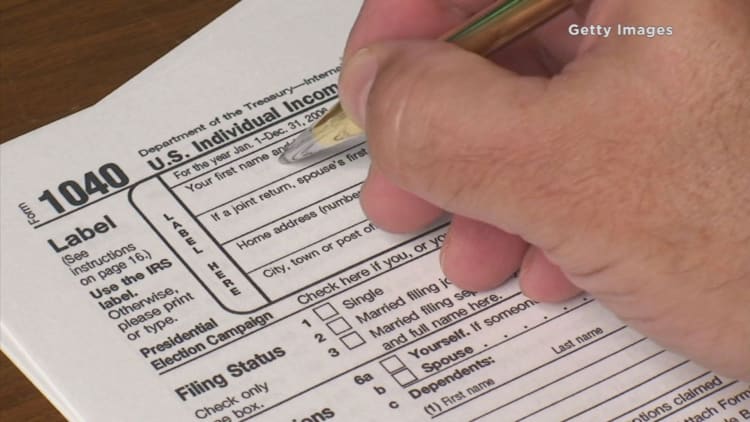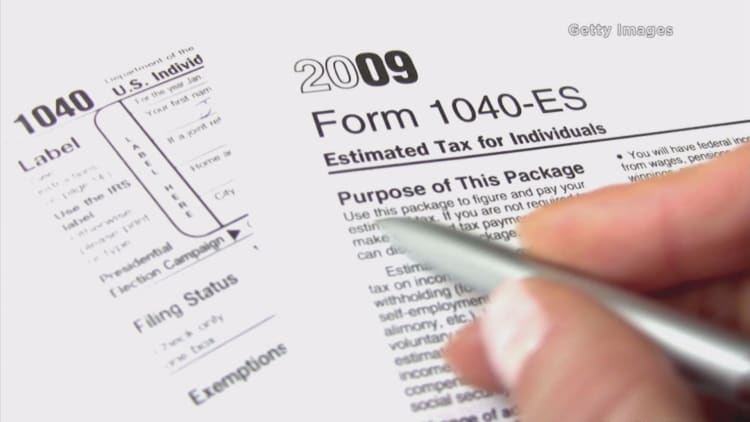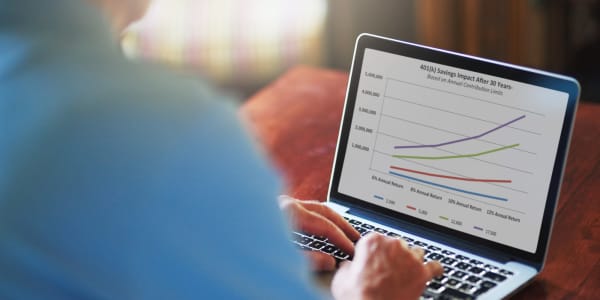
Using your income tax refund to pay down debt can be a smart financial move — but some strategies may net a bigger payoff than others.
One in 5 taxpayers expects to use the cash toward a loan, and 28 percent will use the proceeds to pay bills, according to a new survey from TD Bank. A quarter of respondents said outstanding debt was their biggest hurdle to saving a tax refund.
The survey polled 1,213 taxpayers in early March, with a margin of error of plus or minus 3 percentage points.
It's no surprise that debt is a focus: At the end of 2016, the average household carrying debt owed $134,643, according to a NerdWallet analysis of Federal Reserve data. That includes an average $16,748 among households with credit card debt, and $49,905 among student loan borrowers.
The average income tax refund — $2,860 for tax year 2015, according to the Internal Revenue Service — could be a big help in staying on top of those bills.
"Paying down debt should be your number one priority," said Odysseas Papadimitriou, chief executive of comparison site WalletHub.com.
But which debt? Make a list of what you owe, detailing balances and interest rates. Then pick a strategy.
Some consumers prefer to focus the highest-rate debt first; others knock out the smallest balance first, said Greg McBride, chief financial analyst for Bankrate.com. The former saves you more in interest, while the latter can free up money in your budget to roll into paying down other debts.
Factor in any interest-free balance transfer or other promotional offers, and when they end, said Papadimitriou. Although that's technically your lowest-rate debt, it may be a more pressing priority if you'll soon have a much higher rate.
"In reality you may have paid off the wrong credit card," he said.
Also consider the kind of debt you have. Credit card debt typically offers the best payoff, McBride said. Not only is it a high rate, but it also lacks tax advantages and protections you might have with mortgage or student loan debt.
"I'm not a fan of paying down low-rate, tax-deductible mortgage debt," he said.
I'm not a fan of paying down low-rate, tax-deductible mortgage debt.Greg McBridechief financial analyst, Bankrate.com
No credit card debt? Weigh the after-tax benefit to paying down debt such as student loans or your mortgage against the return of goals like boosting your retirement contributions or building an emergency fund, said Andrea Blackwelder, a certified financial planner and a co-founder of Wisdom Wealth Strategies in Denver. You may be better off saving or investing for those other goals.
If student loan debt is what's keeping you up at night, look to pay down private loans before federal ones, said McBride. Rates are often higher than federal loans and may be variable, he said. Private loans also have fewer protections for struggling borrowers.
(Just make sure, if you're paying down a chunk of your student loans, that the servicer is applying that payment correctly.)
More from Balancing Priorities:
The wackiest tax deductions you never knew existed
Why a huge tax refund is a bad strategy
6 secrets to improving your credit score
Consumers using their tax refund to pay down debt should also look for ways to improve their cash flow, said Blackwelder. Take a hard look at your budget and spending habits to avoid finding yourself in the same situation next year.
Consider adjusting your withholding to reduce your tax-time refund and keep more in your paycheck year-round, she said. That might help you avoid new debt and keep on track with paying down old debt.
"Part of what you have to focus on is how did I get there and how do I keep it from happening again?" she said.
Watch: $1 billion in tax refunds waiting to be claimed






